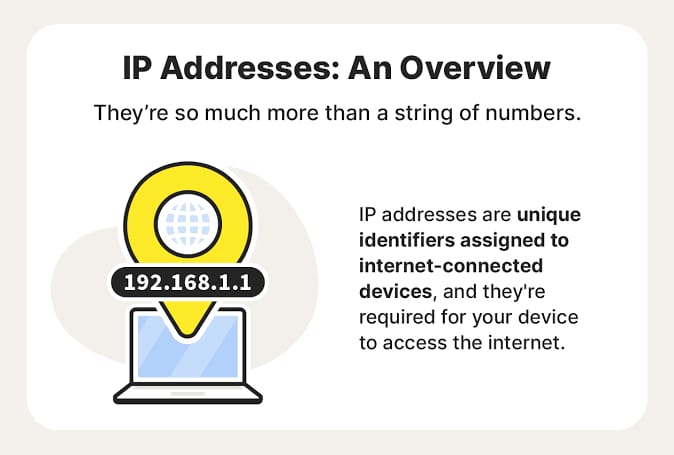Ever come across “127.0.0.1:49342” and wondered what it means? Don’t worry — you’re not alone. It might look like a jumble of numbers, but it’s actually an important concept in the world of computers and networking. Whether you’re tech-savvy or just curious, we’ll break it all down for you in this simple, easy-to-follow guide.
By the end of this blog, you’ll know exactly what 127.0.0.1:49342 is, how it works, and why it matters. So, let’s dive in!
Contents
Introduction: What’s the Deal with 127.0.0.1:49342?
If 127.0.0.1:49342 ever tinkered with web development, troubleshooting, or software testing, you’ve probably seen something like “127.0.0.1:49342” pop up. This combination of numbers represents an IP address and a port. Together, they’re like a digital street address for your computer to talk to itself.
But don’t let the technical-sounding language scare you off! This guide will simplify everything, so you can understand what’s happening behind the scenes.
Breaking It Down: What Does 127.0.0.1:49342 Mean?
1. 127.0.0.1: The Localhost IP Address
The number “127.0.0.1:49342” is called a localhost address. Think of it as your computer’s way of talking to itself. If your computer were a small city, 127.0.0.1 would be its main post office. It’s where local traffic gets routed internally.
Here are a few key facts about 127.0.0.1:
- It’s a loopback address, meaning it doesn’t go out to the internet.
- It’s commonly used for testing and troubleshooting applications.
- Every computer has this address — it’s built into the system.
2. 49342: The Port Number
The “:49342” part is a port number. If 127.0.0.1 is the street address, the port number is like the apartment number. It tells your computer where a specific service or application is running.
A few things to know about ports:
- Computers have 65,535 ports available, each with a specific purpose.
- Common ports include 80 (for websites) and 443 (for secure websites).
- Port 49342 is likely assigned dynamically, meaning it’s temporary and used for internal processes.
When combined, 127.0.0.1:49342 points to a specific program or service running on your computer.
Why is 127.0.0.1:49342 Important?
You might wonder why this combination of numbers even matters. Here’s why:
- Local Testing for Developers
When developers build websites or apps, they often use localhost (127.0.0.1) to test their work. Port 49342 might be where their app is temporarily running. - Troubleshooting and Debugging
If something isn’t working, tools often point to localhost addresses like 127.0.0.1:49342. This helps tech teams figure out what’s broken and fix it. - Safe and Secure
Since 127.0.0.1 only routes traffic internally, it’s isolated from the outside world. That makes it a safe environment for running tests or diagnosing problems.
How to Use 127.0.0.1:49342
Here’s how you might encounter and use 127.0.0.1:49342 in real life:
- Accessing Localhost in a Browser:
Open your web browser and type 127.0.0.1:49342. If a program is running on that port, you’ll see its interface. Developers often use this to preview their work. - Checking Running Services:
Use tools like the command line or task manager to see what’s running on a specific port. For example, you can type netstat -an in your terminal to find active connections. - Fixing Port Conflicts:
Sometimes, multiple applications fight over the same port. You can free up ports by stopping unnecessary processes or reassigning port numbers.
FAQs About 127.0.0.1:49342
1. What is 127.0.0.1:49342?
It’s a combination of an IP address (127.0.0.1) and a port number (49342), used to access specific services running on your computer.
2. Why is 127.0.0.1 called localhost?
127.0.0.1 is the loopback address that points back to your own computer. It’s like a private communication channel for internal processes.
3. What is port 49342 used for?
Port 49342 is usually a temporary port assigned dynamically to a program or service running locally. It’s not fixed to a specific purpose.
4. How can I check what’s running on 127.0.0.1:49342?
Use tools like netstat or your task manager to see what applications are using a specific port on your system.
5. Is 127.0.0.1:49342 safe?
Yes, it’s completely safe since it’s confined to your computer and doesn’t interact with external networks.
Conclusion: Why Understanding 127.0.0.1:49342 Matters
127.0.0.1:49342 might seem like a random string of numbers, but it plays a critical role in how your computer runs programs and tests services. Whether you’re a developer or just a curious user, knowing what this means can help you troubleshoot issues, test applications, and better understand your computer.



Thanks for sharing. I read many of your blog posts, cool, your blog is very good.
Can you be more specific about the content of your article? After reading it, I still have some doubts. Hope you can help me. https://www.binance.com/join?ref=P9L9FQKY
Can you be more specific about the content of your article? After reading it, I still have some doubts. Hope you can help me.